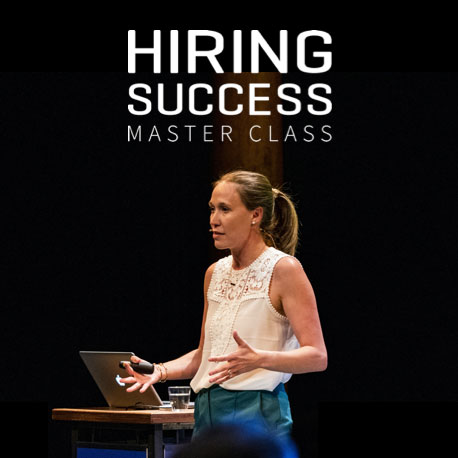This article is part of our focus on sharing how TA leaders can build a more inclusive recruiting process. To become an active participant, check out the Diversity Hiring page!
Recruiters are often the gatekeepers who decide which candidates make it through the doors of a business. They rely on a variety of information-gatherers, like background screening companies, to aggregate data about candidates. But the amount of data provided and collected about job candidates can be overwhelming to sift through. Combined with the disruption to routine HR processes caused by COVID-19, recruiters have a harder hiring job than usual.
Despite these new challenges, or perhaps even because of them, background checks remain a key component to any comprehensive talent acquisition strategy. In fact, background checks play a key role in ensuring a strong fit between a new hire and their new job, thereby driving an organization’s Net Hiring Score (NHS). Let’s explore how the current environment is impacting recruiters’ reliance on background checks, and what types of screening measures are most important within the context of this ongoing pandemic.
Table of Contents
How to Find the Right Talent

There is a correlation between unemployment numbers and the available labor pool of talent. The more people who are unemployed, the bigger the numbers of job applicants vying for open positions. Up until this year, many businesses were facing a talent shortage. Last month, however, the U.S. Bureau of Labor Statistics reported an unemployment rate of 7.9%, down from its peak of 14.7% in April. That translates to 12.6 million people, many of whom have been displaced from jobs because of COVID-19 ramifications.
COVID-19 has created a hiring environment where employers can be more selective from a talent perspective
Bob Capwell, Chief Knowledge Officer at Employment Background Investigations, Inc.
This is terrific news if you’re hiring – with a bigger field to choose from, it’s an opportunity to hit a home run by hiring the right person for the right role. “COVID-19 has created a hiring environment where employers can be more selective from a talent perspective, says Bob Capwell, Chief Knowledge Officer at Employment Background Investigations, Inc., and past board chairman of the Professional Background Screening Association (PBSA).
But the pandemic is also forcing many enterprise-caliber businesses to reevaluate how they recruit and vet candidates to meet their hiring goals for the remainder of 2020 and into 2021. “During times of higher unemployment, we see candidates getting more creative with their job skills and credentials to separate themselves from a competitive job market. Especially during current times of social distancing, organizations must rely upon virtual interviews and remote assessments. This lacks the intimate knowledge a recruiter normally gathers about a candidate during an in-person interview. A comprehensive background check can help more thoroughly validate a candidate in today’s virtual hiring environment,” says Capwell.
With so many new candidates flooding the market since the pandemic began, it is critical leadership reviews its background screening program and policy to ensure it is maximizing investment, mitigating any risk, and managing its HR departments’ workload. Whereas a background screening program comprises the methods you use to collect an applicant’s information, a background screening policy is a blanket set of instructions, guidance, and rules HR professionals use as part of the talent acquisition process. A clearly defined policy instills consistency, accuracy, and efficiency into the recruiting and hiring programs an organization uses.
How to Get the Right Information

If you find, as is the case with many HR departments still dealing with COVID-19 complications, that your team of professionals is understaffed and overworked, you might give extra consideration to contracting with an internationally-accredited Consumer Reporting Agency (CRA) to furnish your background checks.
A CRA is defined as any person which, for monetary fees, dues, or on a cooperative nonprofit basis, regularly engages in whole or in part in the practice of assembling or evaluating consumer credit information or other information on consumers for the purpose of furnishing consumer reports to third parties, and which uses any means or facility of interstate commerce for the purpose of preparing or furnishing consumer reports.
The benefit of using a CRA at any time is that they are up to date on compliance trainings, federal regulations, and the evolving hiring law landscape. The benefit of partnering with a background screening firm during a global health crisis that has affected everything from local law to federal regulation is that the CRA is responsible for maintaining compliance efforts and measures, and communicating those with your talent acquisition team. In an environment where every hire is meaningful to your survival, mitigating risk is a top priority. There are many kinds of background checks that can be run on job applicants. A check can include any combination of the following:
- Social Security Number Trace
- National Criminal Records Database Search
- Statewide Criminal Records Check
- County Criminal Records Check
- FBI Fingerprint Database
- Sex Offender Registry
- Healthcare Sanctions Report (HSR)
- Terrorist Watch List
- Office of Foreign Asset Control (OFAC)
- Driver’s License Verification and Driving Records Check (MVR Report)
- DOT Employment Verifications
- Credit Report Check
- Education Verification
- Employment Verification
- Professional Reference Check
- Professional Qualification Verification
One of the newer screening options employers have relied on during the coronavirus is a social media check. As this pandemic has unfolded and the remote workforce grown, there have been dramatic spikes in social media activity. Coupled with sustained social justice protests and a dramatic election year, social media users – among them job applicants and employees – are responding in increasingly emotional ways. The implications for employers are noticeable, says Bianca Lager, the President of Social Intelligence, a Santa Barbara-based Consumer Reporting Agency.
“People’s emotions are heightened right now. And there is more violent content being posted, specifically people are being more threatening online,” she says. In the months pre-COVID-19, Social Intelligence found about 1 in 15 people had some sort of red flagged online content. Its current numbers are about 1 in 9. Violent behavior results have also climbed. Pre-COVID-19, Social Intelligence reported about 1 in 60 people had posted something violent. Now it is finding 1 in 33. Determining which background checks you need is not a one-size-fits-all-industries answer. The checks you choose are usually dependent on and determined by the role you are looking to fill. For example, you typically wouldn’t need a Healthcare Sanctions Report (HSR) if you are not hiring for a healthcare-related position. As organizations close out this year and look toward 2021, leadership may want to examine its hiring goals and budget, types of opens positions, and its baseline background check needs before adjusting any policies or programs.
How to Time it Right

While the pressures on businesses to survive this tumultuous economy feel overwhelming, one move you don’t want to make is abandoning background checks as a cost-saving measure. A CareerBuilder survey found that one bad hire can cost an employer nearly $15,000. Not only is this a needless monetary cost during a risky time, but the damage to morale and loss of productivity that comes from hiring the wrong person can have a negative impact on a workforce that’s still coping with COVID-19 consequences.
“The failure of a company to exercise a reasonable standard of due diligence by not conducting a basic background check creates significant risk exposures when it comes to workplace safety, asset protection, brand reputation, and workplace culture. A company who tries to defend a lack of due diligence in court might find it indefensible,” cautions Curt Schwall, Vice President of Compliance and Regulatory Affairs at EBI. By understanding how pre-employment background screening helps HR professionals gather the right applicant information at the right time, talent acquisition teams can better align the types of checks they need to help organizations meet hiring goals during and after COVID-19.
The failure of a company to exercise a reasonable standard of due diligence by not conducting a basic background check creates significant risk exposures when it comes to workplace safety, asset protection, brand reputation, and workplace culture
Curt Schwall, Vice President of Compliance and Regulatory Affairs at EBI
It’s important to remember background checks solve for two great needs of any comprehensive hiring and onboarding strategy. One, screening candidates helps HR professionals establish and maintain a safe workplace for employees, clients, and visitors – this is a vital success factor in talent retention. Two, screening helps recruiters learn information about each candidate that helps place the right talent at the right time in the right job. This positions the new hire for success and strengthens your business’s ability to recover from this health crisis.
This article is part of our focus on sharing how TA leaders can build a more inclusive recruiting process. To become an active participant, check out the Diversity Hiring page!

 Enroll in the Master Class & earn 6 SHRM credits
Enroll in the Master Class & earn 6 SHRM credits